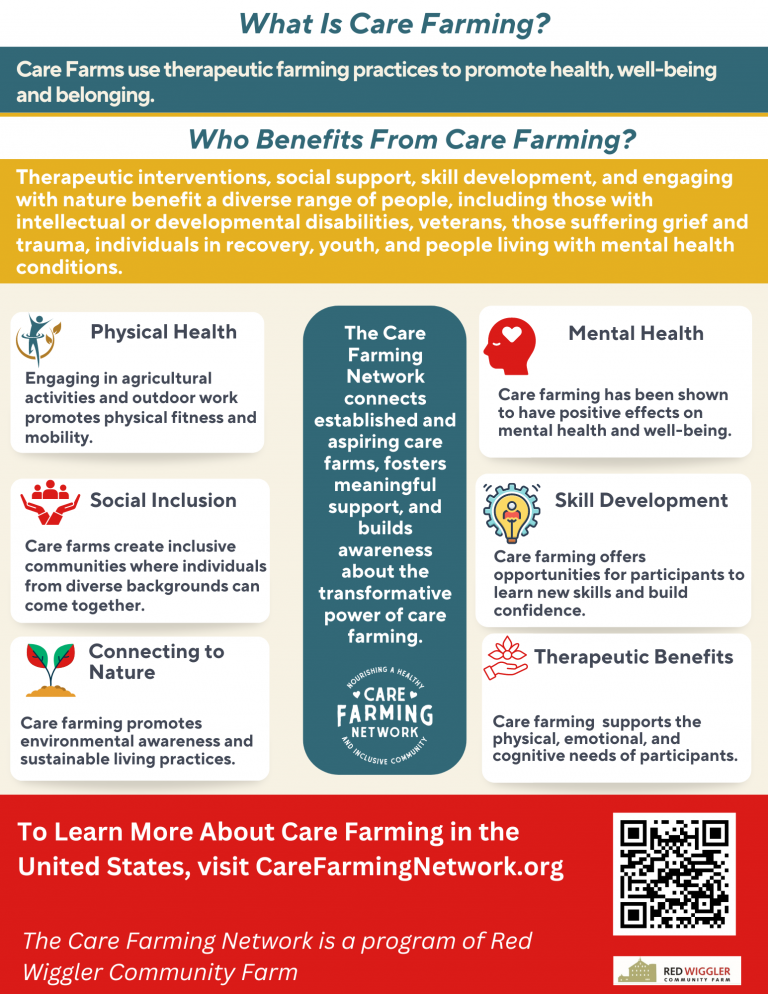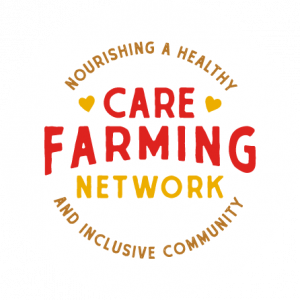Care farming offers a range of benefits for participants, society, and the environment.

- Physical Health: Engaging in agricultural activities and outdoor work can promote physical fitness and mobility. The green environment is part of the care, and activities such as gardening and animal care provide opportunities for physical activity and interaction in nature.
- Mental Health: Care farming has been shown to have positive effects on mental health and well-being. Spending time in nature and participating in therapeutic activities can reduce stress, anxiety, and depression. The sense of accomplishment from completing farm tasks and the social interaction with others also contribute to improved mood and self-esteem.
- Social Inclusion: Care farms provide a supportive and inclusive community where individuals from diverse backgrounds can come together. Participants have the opportunity to build relationships, develop social skills, and combat loneliness and social isolation. This sense of belonging to a community enhances overall quality of life and fosters teamwork and collaboration.
- Skill Development: Care farming offers opportunities for participants to learn new skills and build confidence. Engaging in agricultural work, animal care, and other farm tasks can develop practical abilities such as gardening, animal husbandry, woodworking, and cooking. These skills not only benefit participants during their time on the farm but also have practical applications in everyday life and potential vocational opportunities.
- Therapeutic Benefits: Care farming provides a therapeutic environment that supports the physical, emotional, and cognitive needs of participants. Horticulture therapy, animal-assisted therapy, and other therapeutic interventions offered on care farms can help individuals manage symptoms of various conditions such as PTSD, substance abuse disorders, autism spectrum disorders, and dementia. The calming effects of nature and the meaningful engagement with farm activities contribute to overall therapeutic outcomes.
- Environmental Connection: Care farming promotes environmental awareness and sustainable living practices. Participants gain a deeper appreciation for nature and agriculture through hands-on experiences on the farm. Learning about the natural world, sustainable farming methods, and conservation efforts fosters a sense of environmental stewardship and encourages responsible behavior towards the planet.
- Cost-Effectiveness: Care farming has the potential to provide cost-effective interventions for health and social care. By utilizing existing agricultural resources and volunteer support, care farms can deliver therapeutic services at a relatively low cost compared to traditional healthcare settings. This makes care farming an attractive option for governments, healthcare providers, and charitable organizations seeking innovative approaches to supporting vulnerable populations.
